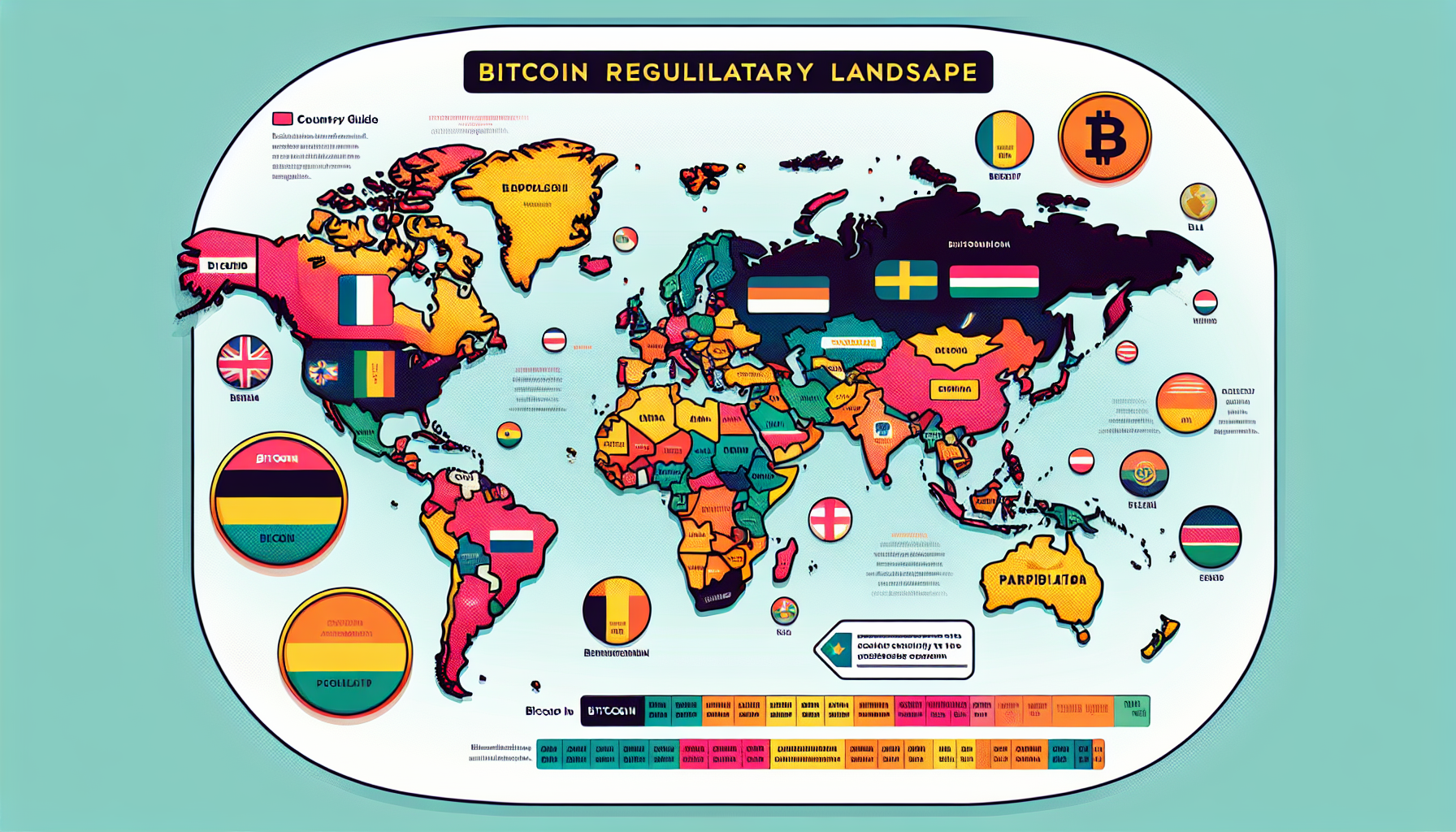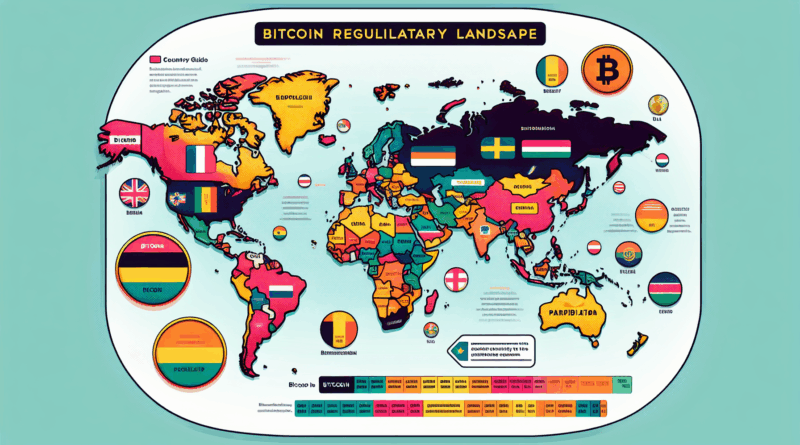Navigating the Bitcoin Regulatory Landscape: A Country-by-Country Guide
Understanding the Global Bitcoin Regulatory Landscape
As the Bitcoin and cryptocurrency market continues to grow, many investors find themselves asking: what are the regulatory landscapes across different countries? With over 5.6 billion cryptocurrency users worldwide, understanding the laws governing digital currencies is crucial for compliance and investment safety.
Bitcoin Regulations in North America
In the United States, the regulatory framework surrounding Bitcoin is largely fragmented. Each state has its own regulations, with California and New York being particularly active. For instance, New York has established the BitLicense framework, which mandates cryptocurrency businesses to comply with various requirements. However, on a federal level, agencies like the SEC and CFTC continue to debate the classification of Bitcoin.
Canadians enjoy a comparatively welcoming regulatory environment, with various provinces having licenses for crypto exchanges. Moreover, in Canada, Bitcoin is considered a commodity, thus allowing derivatives trading.

Regulatory Approaches in Europe
Europe represents a mixed bag of regulation, with countries like Germany and Switzerland leading the way in supportive legislation. Germany recognizes Bitcoin as a legal form of payment, with the BaFin overseeing crypto asset businesses. Conversely, nations like Spain are still working through regulatory hurdles.
Countries in the European Union are looking towards unified regulations under MiCA (Markets in Crypto-Assets) legislation, aiming for uniformity across member states in the near future.
Bitcoin Regulation in Asia-Pacific
The Asia-Pacific region presents a varied landscape. For instance, Japan has adopted a progressive stance, legalizing Bitcoin and implementing a registration regime for exchanges. In stark contrast, China has imposed an outright ban on crypto transactions and mining activities, aiming to curtail financial risks.
In Singapore, the approach is more balanced, encouraging innovation while enforcing stringent measures against money laundering and fraud. Businesses dealing with cryptocurrencies must comply with the Payment Services Act.
Emerging Regulations in Other Regions
In nations like Brazil and Nigeria, cryptocurrency regulations are slowly taking shape. Brazil recently proposed significant tax laws on crypto trading, while Nigeria has been increasingly supportive of blockchain technologies despite its initial ban on crypto transactions.
Many governments are still exploring how to regulate Bitcoin, as the need for taxation and consumer protection grows.
Conclusion: Stay Ahead of the Regulatory Curve
Understanding the Bitcoin regulatory landscape is not just an option for investors; it’s a necessity. Countries differ vastly in their approach, and failing to stay informed can lead to compliance issues or financial losses. As an investor, it’s advisable to consult local regulations regularly, especially as laws evolve.
To ensure you are ahead of the game, consider downloading our cryptocurrency security guide for practical tips on securing your digital assets. This could mean the difference between safe investments and financial pitfalls.





